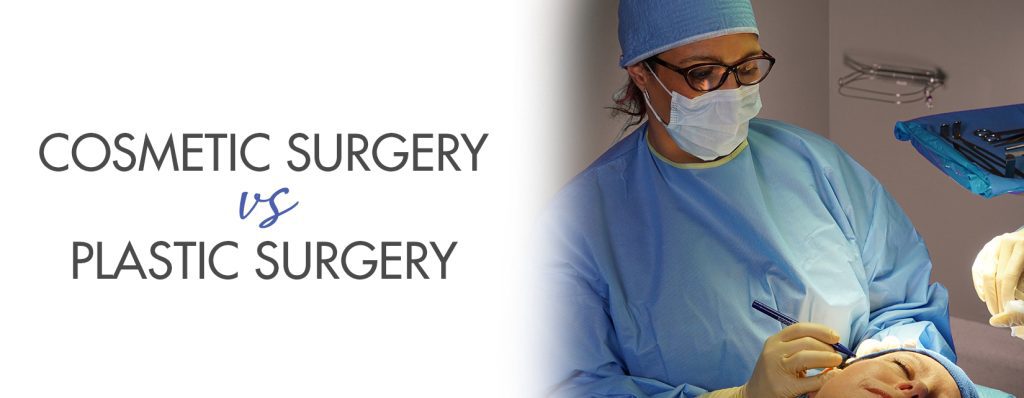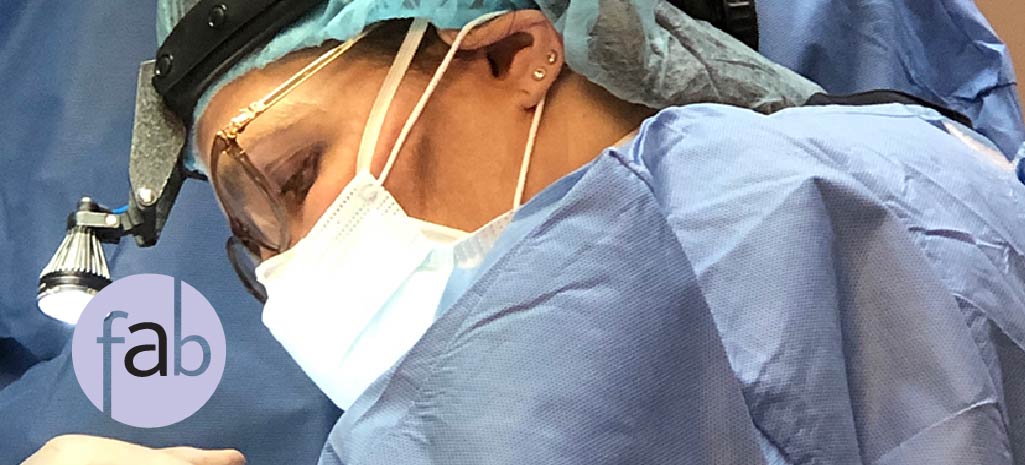
In essence, the differences between cosmetic surgery vs plastic surgery are minimal, but they are certainly critical. Without knowing the differences and caveats, you are risking your own health.
As long as you consider everything in this article, you will be well ahead of those who don’t. Without proper pre-treatment education, patients are often dissatisfied with the outcomes. In this article, we will cover everything you need to know.
So whenever you’re ready to broaden your understanding of cosmetic/plastic surgery, get your notes and keep reading.
Cosmetic Surgery: Enhancing Appearance
The principles, procedures, and techniques of cosmetic surgery are derivative of the goal to enhance the appearance of the patient. Improving the proportions, symmetry, and aesthetic is the primary initiative.
Cosmetic surgery can be performed on all parts of the body, neck, and head. Since the procedures can be used on parts of the body that function properly, cosmetic surgery is elective. Elective procedures are done by specialists in a multitude of medical fields, even plastic surgeons.
Some examples of cosmetic surgery are, but not limited to:
- Breast augmentation, reduction, lift
- Body contouring, liposuction, tummy tuck, gynecomastia reduction
- Facial rejuvenation, eyelid lift, brow lift, face lift, neck lift
- Facial contouring, rhinoplasty, cheek enhancement, chin enhancement
- Skin rejuvenation, botox, fillers, laser resurfacing
There are many other types of cosmetic surgeries with new experimental treatments coming out every month. It’s up to you to decide what kind of treatment you receive, and it’s also up to you to decide how well your recovery goes.
Plastic Surgery: Reconstructing Appearance & Function
Surgery dedicated to the reconstruction of the body and facial defects due to trauma, disorders, disease, and burns is called plastic surgery. This type of surgery is designed to correct the dysfunction of the body.
While many plastic surgeons acquire extensive training and do cosmetic surgery on the eh side, the basis of their training lies in reconstructive surgery. As a matter of fact, the American Society of Plastic Surgeons has changed its name to communicate that reconstruction surgeons are plastic surgeons.
Some examples of plastic surgery treatments are, but not limited to:
- Burn victim surgery
- Hand surgery
- Scar revisions
- Congenital defect repair
- Cleft palate repair
- Extremity repair
- Breast reconstruction
- Lower extremity rebuilding
And much more. Plastic surgery is more of a direct and targeted type of procedure. It’s very rarely elective and is usually advised by medical specialists during various assessments.
Cosmetic Surgery vs Plastic Surgery Certification Differences
Cosmetic surgeons and plastic surgeons who have board certifications will have a different training journey and different education.
Board-certified plastic surgeons will have at least 4 years of medical school, up to 6 years of medical residency with practice in plastic and general surgery. But they would have also passed an exam for certification with the American Board of Plastic Surgery.
Board-certified cosmetic surgeons will have at least 4 years of medical school, up to 6 years of medical residency in a specialized area. Some of these areas are:
- Obstetrics
- Gynecology
- Plastic surgery
- General surgery
- Maxillofacial and oral surgery
- Otolaryngology
- Ophthalmology
- Dermatology
After this, they will pass their certification exam from a different board, which is the American Board of Cosmetic Surgery. Because medical boards vary state by state, you should inquire with your state about board certification and its importance.
But What Does Board Certified Mean?
As you already know, surgeons have different requirements for board-certification based on which board certifies them. Real board-certified surgeons in plastic surgery have been credentialed by ABPD. ABPS certifies under the American Board of Medical Specialities, which has the same standards since 1933.
Board-certified surgeons who have at least 6 years of specialized training in an accredited training program in a regulated school by the Accreditation Council for Graduate Medical Education had the chance to certify.
The ACGME accredits the majority of graduate medical programs. The American Society of Plastic Surgeons is responsible for certification after education. Whereas, the American Board of Cosmetic Surgery does the same for cosmetic surgeons.
However, cosmetic surgeons don’t necessarily have to have board certification to refer themselves as such. Any doctor from an oral surgeon to a dermatologist can refer to themselves as a cosmetic surgeon.
It’s quite confusing that we don’t have regulated standards for who can themselves what they want.
The Problem Of Medical Marketing
An even greater problem than knowing the differences between certification and surgeon type is that many people fall into the hands of professionals who are not in fact cosmetic surgeons.
This can include a gynecologist or dentist who provides fillers, for instance. These doctors might have limited cosmetic options, and they will often not provide a full list of procedures, nor have the capacity to handle the complications and consequences.
If they can only perform several procedures, they will not give you the freedom of choice based on your needs and anatomy. The recommendations to you are based on what they can do, not what you need.
If they don’t have the experience to offer everything, it’s best to avoid their work. Physicians who call themselves cosmetic doctors, opposed to cosmetic surgeons might have some training, but this will prevent patients from understanding what they can truly get in terms of surgery.
On the contrary, a cosmetic surgeon will be able to detail all the technologies that are best for the patient, as well as give them the freedom to choose. True confusion sets in when people find out that legally any physician with a license can perform the cosmetic practice.
Having any physician advertise themselves as a cosmetic surgeon is a problem. Most of the time-poor outcomes come from patients not being properly educated on all the possible procedure options.
Seeking a board-certified specialist is critically important as opposed to looking for a specialist who only performs one type of procedure. Why settle for less, when you can settle for more?
What to Look for When Hiring Either
Some plastic surgeons perform cosmetic surgery as an element of their main practice. If that’s the case, you might see these terms referred to them:
- Cosmetic plastic surgeon
- Facial cosmetic surgeon
- Reconstruction and cosmetic surgeon
And any other term that covers both terms under an umbrella. Cosmetic surgeons can also use these terms. This can be daunting for the patient who is searching for the appropriate doctor for their procedure.
Instead of focusing on the title of a surgeon, you should look for board certification in specialized medical fields. You can visit a board certification website like Healthgrades to examine their specialty area, certification, and all other background information.
Next, you want to ensure they have experience in the procedure you want. This means they regularly perform this procedure with great results. Ask them how many times they performed in the last year, be proactive.
You should also learn about the complications that they have encountered and how they handled the aftermath to correct them.
The final parameters to look for are high patient satisfaction and brilliant quality of care. If the surgical center or hospital is not caring to you from the moment you step indoors, you should leave. Procedures don’t always happen where you meet the surgeon, but if it does, research their performance online.
Finally, you want to visit a surgeon that has patient satisfaction going through the roof. This will give you peace of mind and an expectation of what your experience with the doctor might be.
Consulting With A Surgeon
When you’ve brought your choice of surgeons down to a narrow list, book an appointment to consult with them. These surgeons will assess the part of the body you need to be treated, and you will share the medications you take, discuss your desires and medical history.
During this consultation, you should ask some questions. Feel free to use the ones below:
- Which surgical options do you provide? What are the benefits?
- Are the results permanent?
- Am I a good candidate for this treatment?
- Are there other treatments that might work as well or better for me?
- Can the desired outcome be achieved with a single procedure?
- Can you share references and before/after photos?
- How many times have you completed this treatment?
- Will I be hospitalized?
- What anesthetic will be used and how will it affect me?
- How much will the treatment cost?
- How will my recovery be monitored after treatment?
- What follow-up care do I need?
- What are the possible side-effects?
The more you cover with your surgeon, the more you establish achievable and measurable goals before treatment. Thus, allowing a satisfactory outcome to come out of this relationship.
However, even if you’ve found a surgeon you can afford and like, as well as have done your research about everything. The decision to pursue surgery is yours alone.
Ensure that you are comfortable with the treatment and the surgeon who will perform it.
Smooth Recovery Is On You
It might feel good to put the entire responsibility into the hands of the surgeon, but that’s rarely a good thing to do. Smooth recovery is as much your responsibility as theirs.
If they perform the treatment properly, and you don’t perform the follow-up recovery activities, you will be dissatisfied.
So what can you do to improve the likelihood of a proper recovery? Begin by following the instructions of the surgeon. If you find that you are asking to be excepted from a rule, such as taking medication you shouldn’t or exercising before the allotted time, you are taking a big risk.
Do you want the surgeon to cut corners with your procedure? If you answered no, expect the same on your end.
Before your procure, prepare at home in advance. Arrange a recline, hospital bed, pre-cooked meals, a caretaker, or anything else that you think you might need.
For outpatient procedures, find someone who can pick you up and get you there on time. Ambulatory medical centers don’t have the necessary staff to accommodate missed deadlines. If your plastic surgeons want you to have a caretaker, arrange it.
If you are responsible for parents, children, or dependents, arrange for someone to care for them. Also, be patient, healing is a continual process.
Swelling does not go away in a day, final results are not evident right away and scars are not very pretty before they heal. If you have any questions during recovery, call the surgeon. A simple question can help you clear up most issues.
Mental Battle
Many patients experience mental discourse during recovery after surgery. This is quite normal, you need to express your feelings to the surgeon and staff since it’s their job to support you while you get back to full health.
If you feel the results don’t meet your expectations, discuss your concerns with the surgeon. No matter which body part, if it has a pair, one side will naturally be asymmetrical.
Our eyes don’t often recognize the asymmetry until after surgery, especially because everything seems new to us. Your plastic surgeon can help you determine which mismatches occurred naturally from the surgery.
Those who are happy with the outcome are those who go into surgery with realistic desires and expectations. The more informed you are about the surgery and potential outcome, the higher the chance of you being satisfied is.
Plastic surgeons cannot adjust your genetics, your underlying asymmetry, and your tissue tone. If you think otherwise, you’re very likely to be dissatisfied with the procedure, which defeats the very reason you got it in the first place.
Cosmetic Surgical Solutions for You
Now that you have discovered the differences between cosmetic surgery vs plastic surgery, you are much closer to knowing exactly what you want. Without this newfound knowledge, you would be walking in the darkness, not knowing where to go.
As long as you have a desire to change, an understanding of which path can help you change, and know how to communicate this desire to a certified specialist, you will achieve the greatest results.
If you’re interested in Atlanta local cosmetic surgical solutions, get in touch with us and we will happily accommodate your needs.









